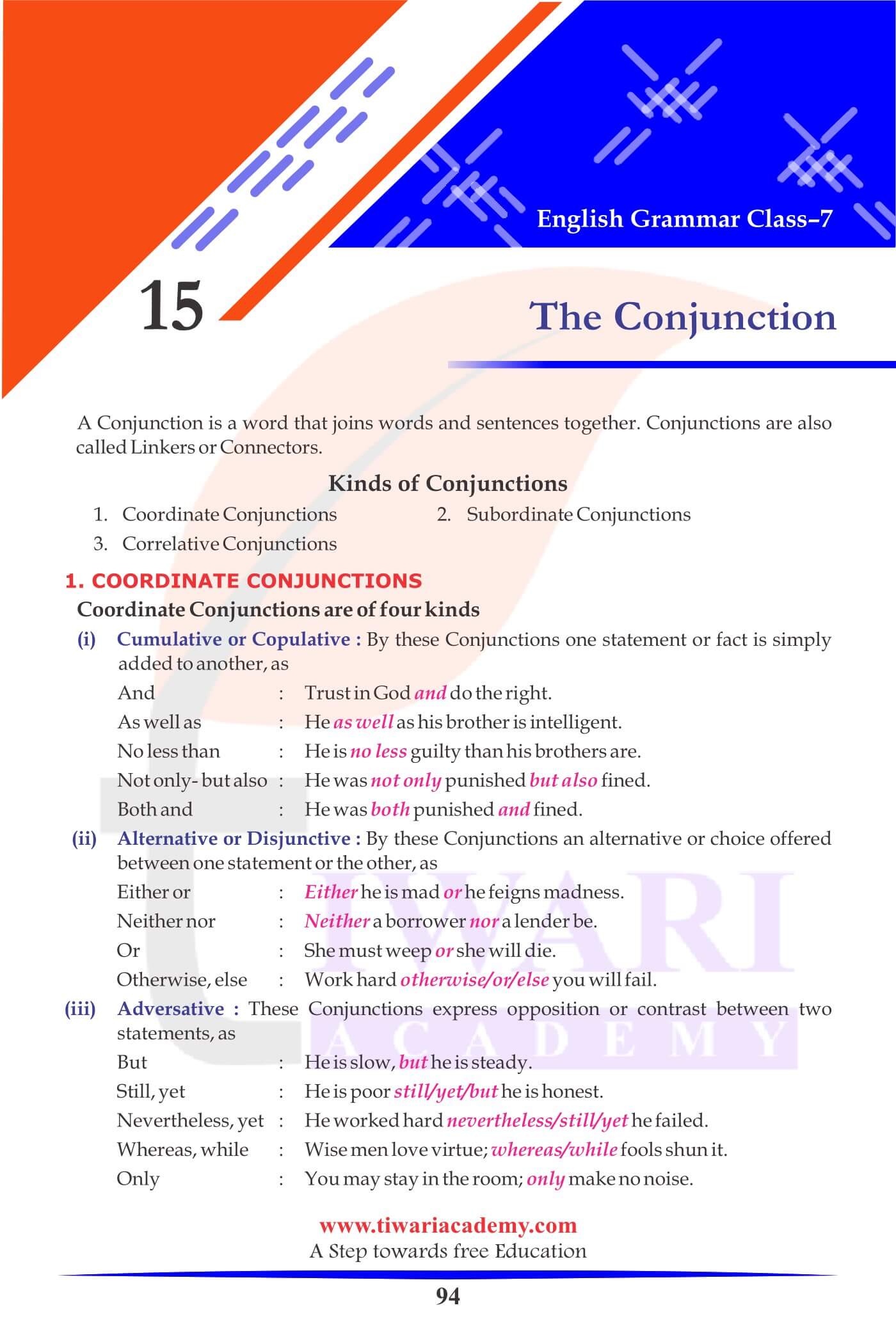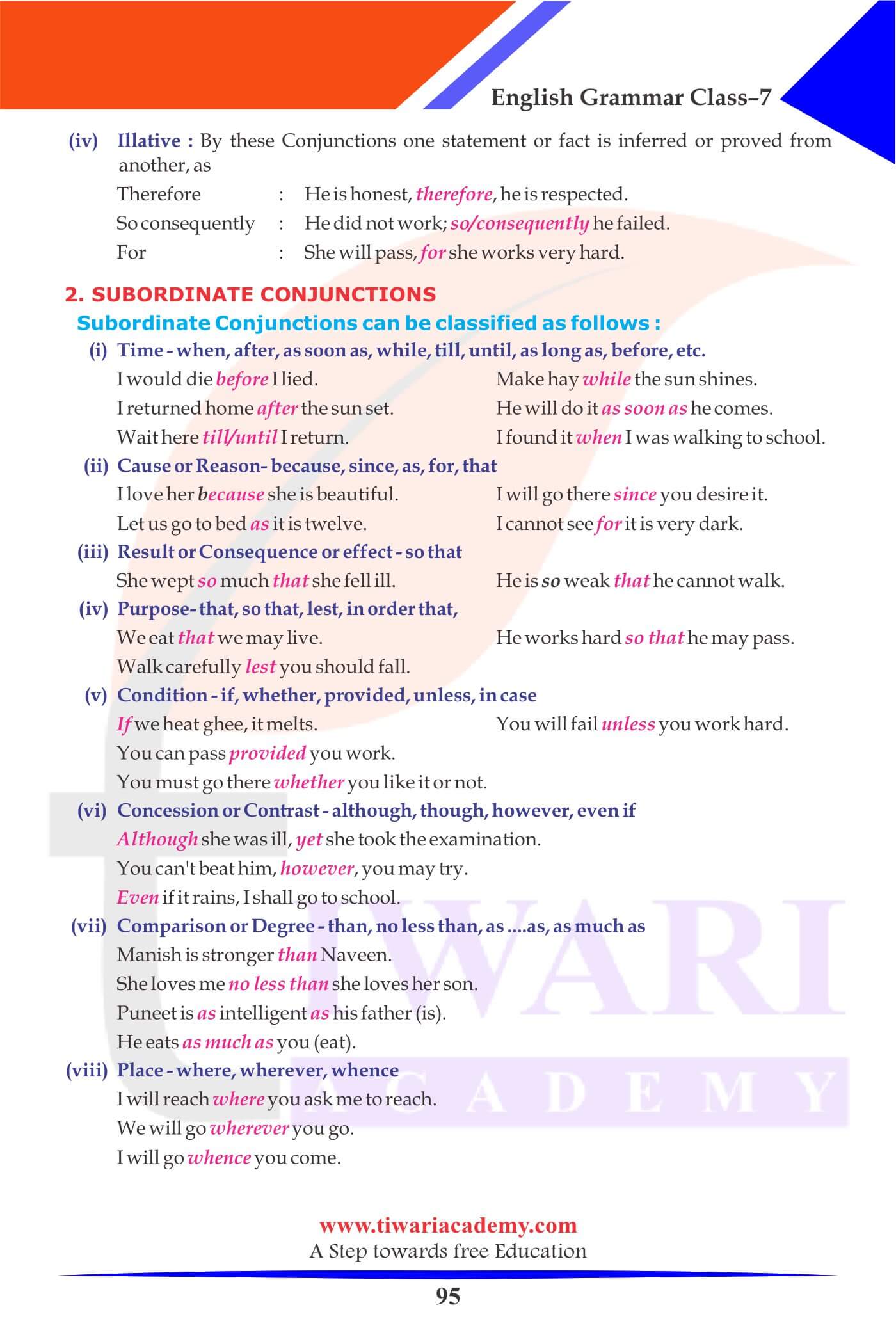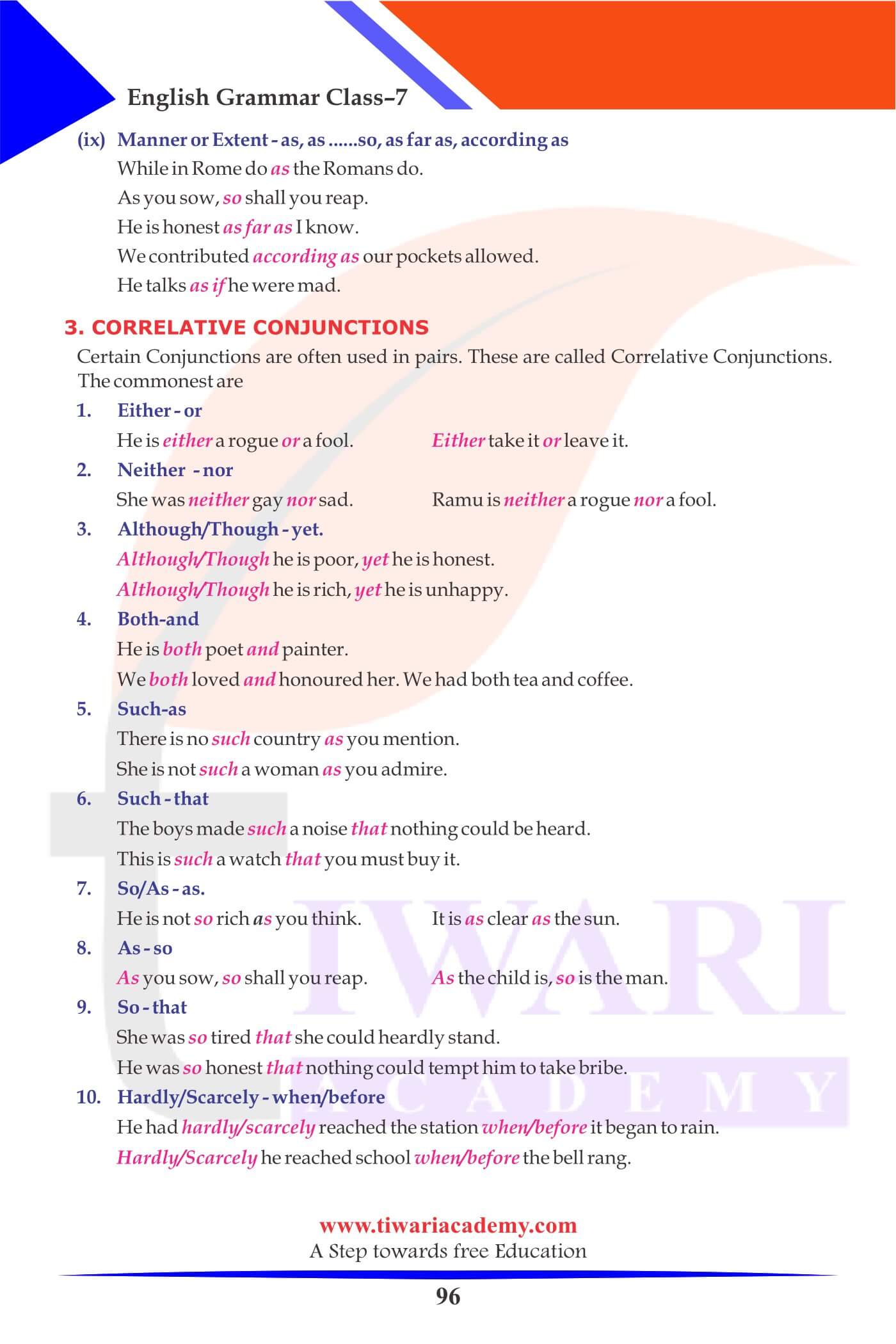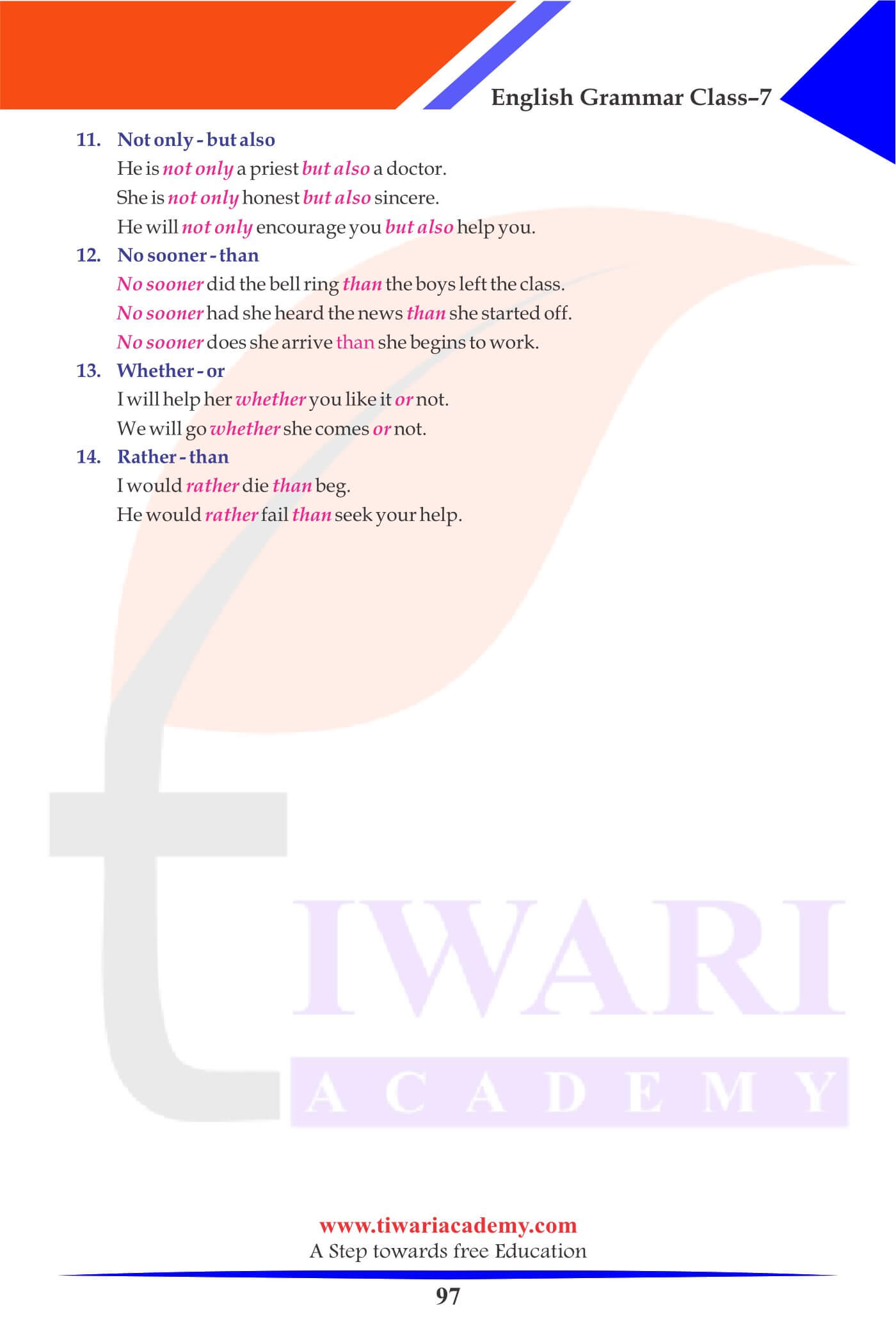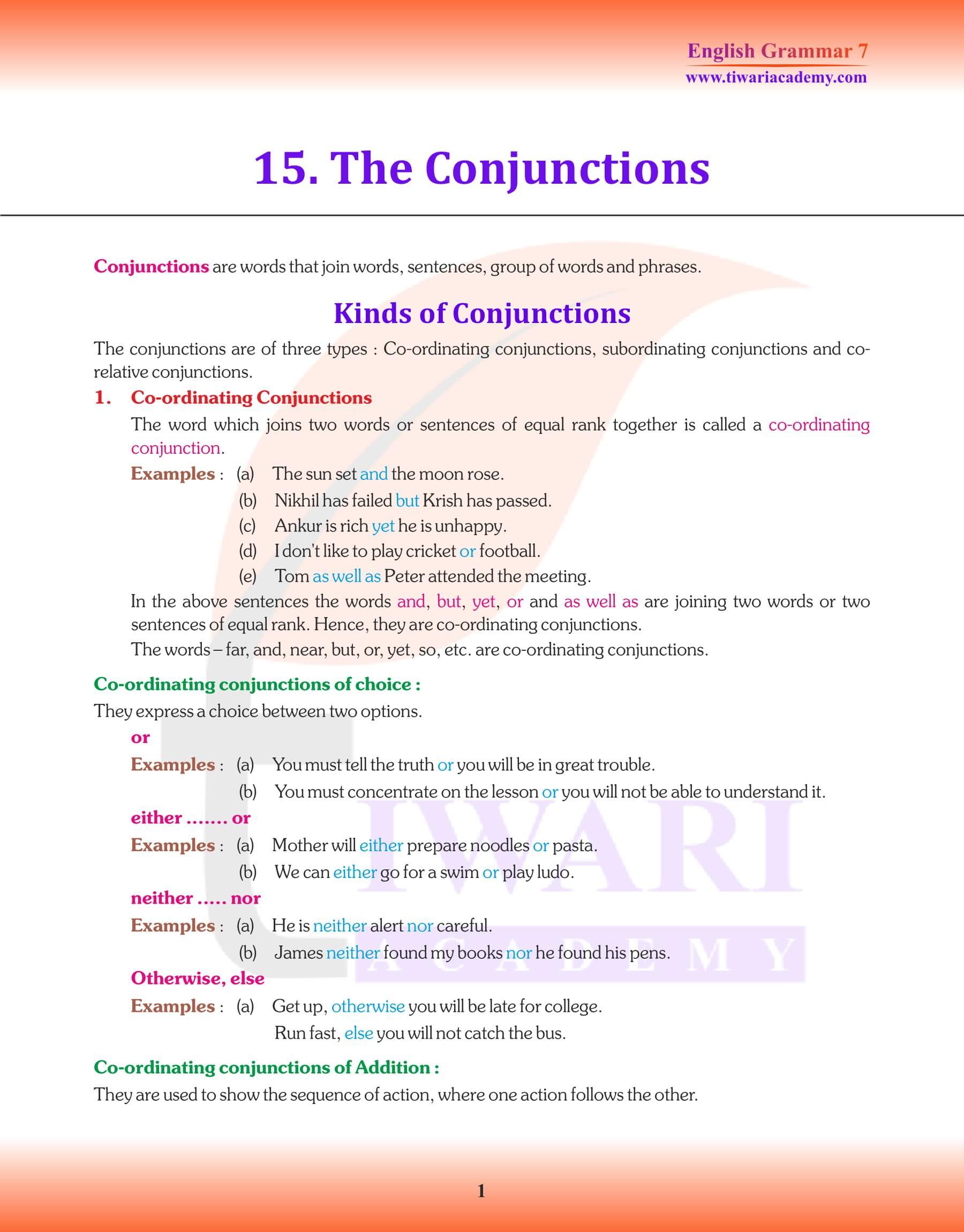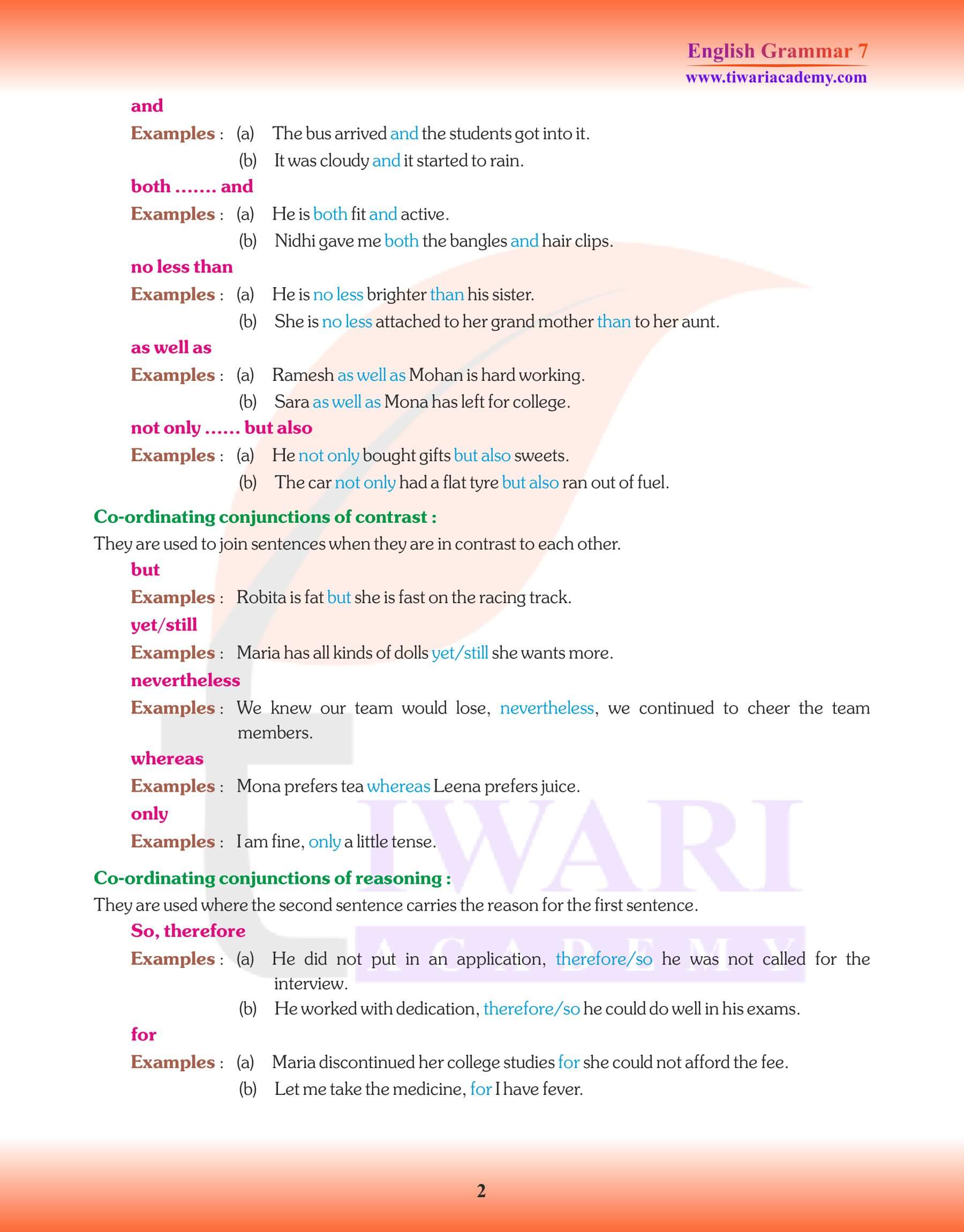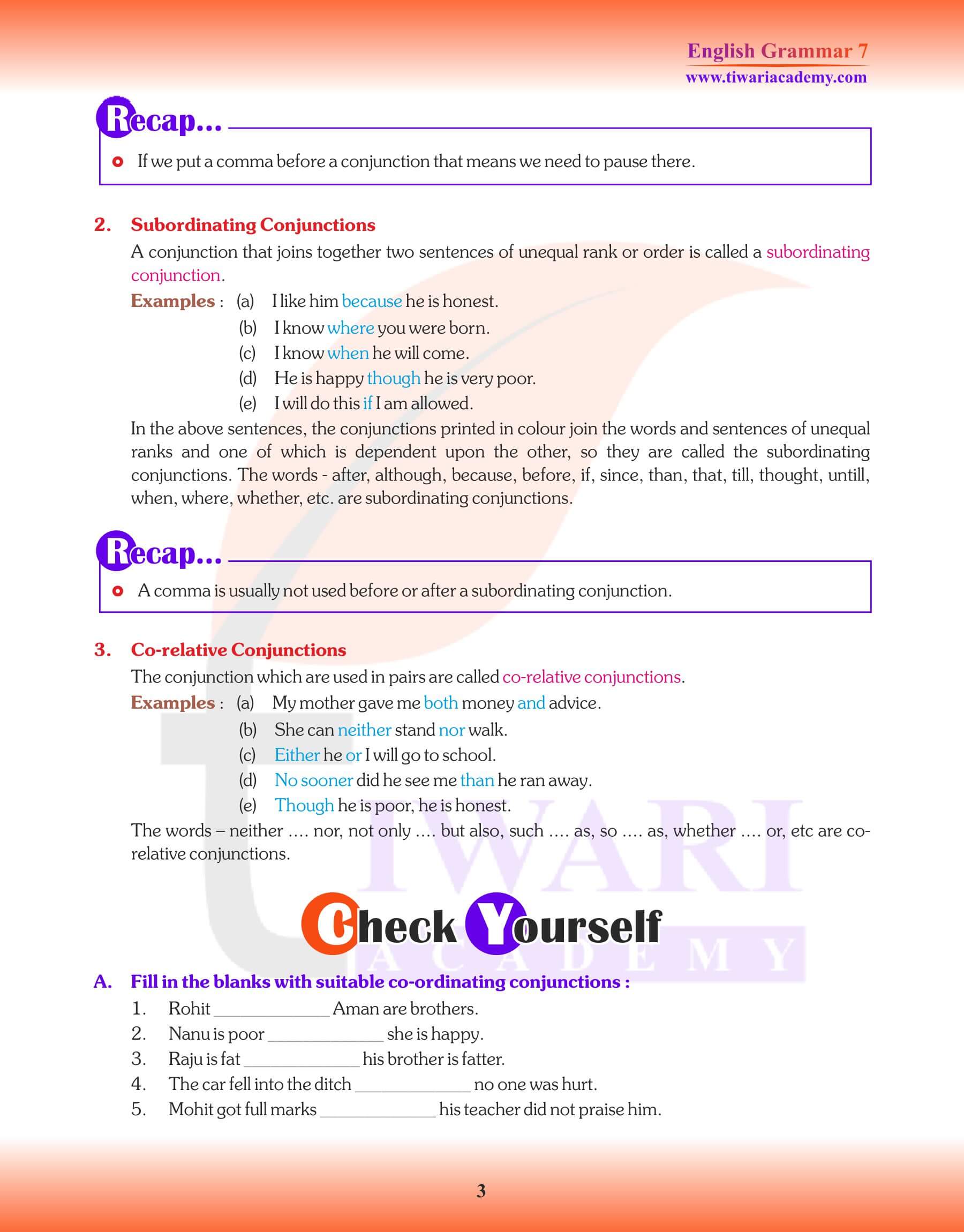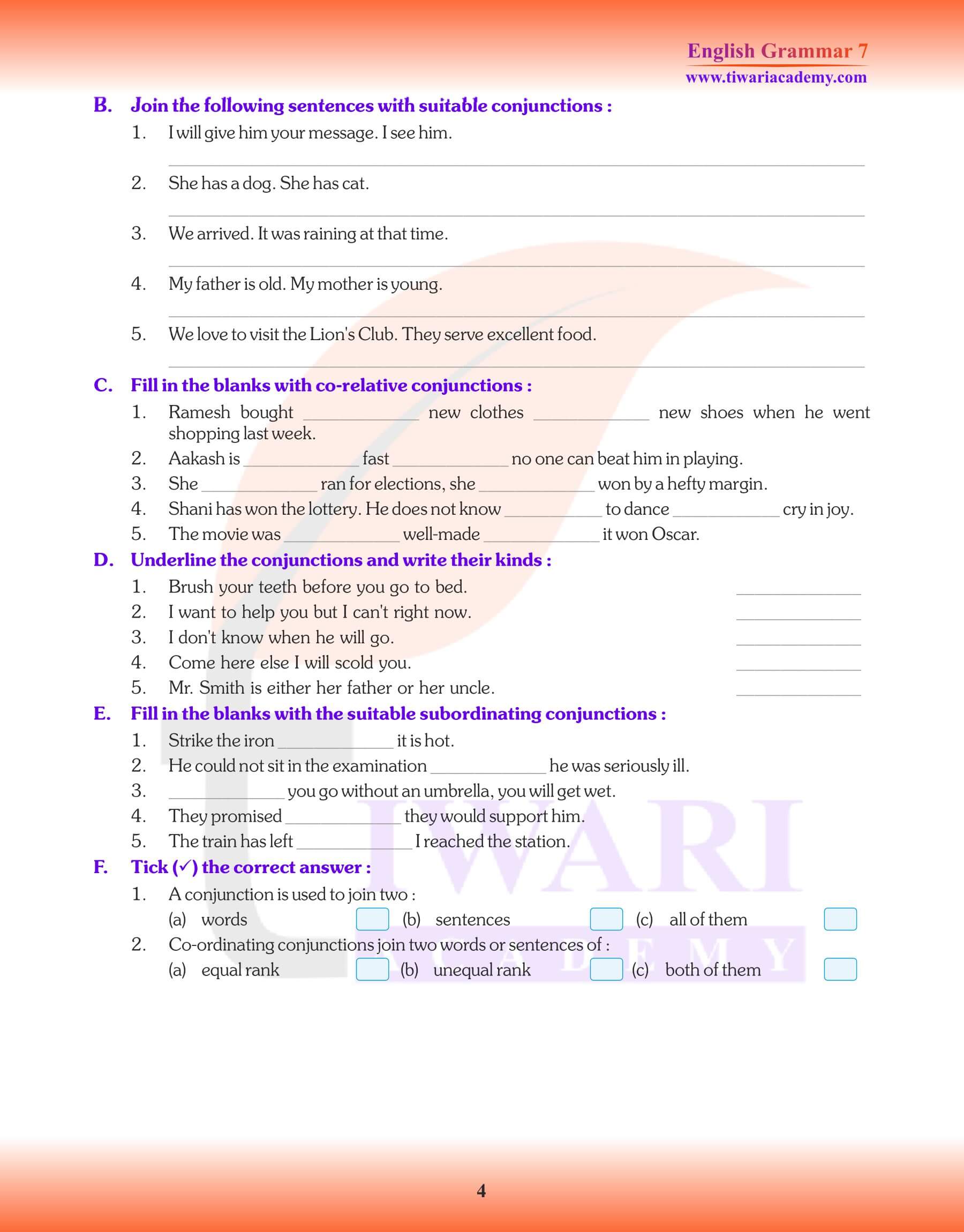Class 7 English Grammar Chapter 15 The Conjunction. A Conjunction is a word that joins words and sentences together. Conjunctions are also called Linkers or Connectors. There are mainly three types of conjunctions. Coordinate Conjunctions, Subordinate Conjunctions and Correlative Conjunctions. Definitions of three types of conjunctions with examples of each type.
Class 7 English Grammar Chapter 15 The Conjunction with Examples
Conjunctions, often regarded as the glue that holds the English language together, are the spotlight of Chapter 15 in Class 7 English Grammar. These essential words, also termed as ‘Linkers’ or ‘Connectors’, have the primary role of seamlessly joining words, phrases, or sentences, ensuring smooth flow and coherence in communication. With three distinct types – Coordinate Conjunctions, Subordinate Conjunctions, and Correlative Conjunctions – each category has its unique function in the vast realm of English grammar.
| Class: 7 | English Grammar |
| Chapter: 15 | The Conjunction |
| Academic Session: | 2024-25 |
| Study Material: | Textbook and Revision Notes |
Cumulative or Copulative Coordinate Conjunctions
By these Conjunctions one statement or fact is simply added to another.
| And | Trust in God and do the right. |
| As well as | He as well as his brother is intelligent. |
| No less than | He is no less guilty than his brothers are. |
| Not only- but also | He was not only punished but fined also. |
| Both and | He was both punished and fined |
Delving deeper into their specifics, Coordinate Conjunctions work by connecting words, phrases, or clauses of similar importance. Subordinate Conjunctions, on the other hand, link dependent clauses to independent ones, introducing a relationship of dependence. Lastly, Correlative Conjunctions function in pairs, ensuring both parts of a sentence are evenly balanced. Each type comes with its set of examples in the chapter, making the learning experience comprehensive and user-friendly. By mastering conjunctions, learners can craft well-structured and articulate sentences with ease.
Alternative or Disjunctive Coordinate Conjunctions
By these Conjunctions an alternative or choice offered between one statement or the other.
| Either or | Either or he is mad he feigns madness. |
| Neither nor | Neither a borrower nor a lender be. |
| Otherwise, else | Work hard otherwise/else you will fail |
| Or | She must weep or she will die. |
Adversative Coordinate Conjunctions
These Conjunctions express opposition or contrast between two statements.
| But | He is slow, but he is steady. |
| Still, yet | He is still/yet poor he is honest. |
| Nevertheless, yet | He worked hard nevertheless/yet he failed. |
| Whereas, while | Wise men love virtue; whereas fools shun it. |
| Only | You may stay in the room; only make no noise. |
Subordinate Conjunctions
The examples for the uses of Time – when, after, as soon as, while, till, until, as long as, before, etc., as a Subordinate Conjunction are given below.
| Before | I would die before I lied. |
| While | Make hay while the sun shines. |
| After | I returned home after the sun set. |
| As soon as | He will do it as soon as he comes. |
| Untill | Wait here untill I return. |
| When | I found it when I was walking to school. |
Subordinate Conjunctions Examples
The examples for the uses of Cause or Reason- because, since, as, for, that etc., as a Subordinate Conjunction are given below.
| Because | I love her because she is beautiful. |
| Since | I will go there since you desire it. |
| As | Let us go to bed as it is twelve. |
| For | I cannot see for it is very dark. |
Correlative Conjunctions
Certain Conjunctions are often used in pairs. These are called Correlative Conjunctions.
| Either – or | He is either a rogue or a fool. |
| Neither – nor | Ramu is neither a rogue nor a fool. |
| Both – and | He is both poet and painter. |
| Such – as | There is no such country as you mention. |
| So – that | She was so tired that she could heardly stand. |
